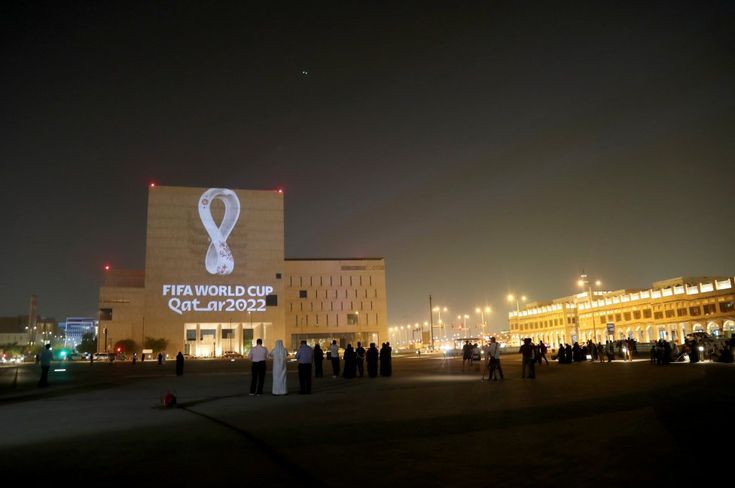IN THE MEDIA
A scandalous World Cup
November 16, 2022 | Tzvi Fleischer

An edited version of this article was published in the Herald Sun and Courier Mail – 16 November 2022
Scandalously, this year’s FIFA World Cup will kick off in Qatar on Nov. 21.
I say “scandalously” for a number of reasons.
Firstly, the decision to award the World Cup to Qatar by the international soccer federation FIFA literally became a major scandal. There have been numerous bribery allegations against FIFA officials, and police investigations of them, since Qatar was awarded the tournament in 2010. FIFA President Sepp Blatter was essentially fired over corruption related to the Qatari and other recent World Cup bids.
Blatter has repeatedly conceded the decision to give the World Cup to Qatar was a “mistake”.
He’s right – the biggest scandal is that, unless one’s sole selection criterion is who is willing to spend the most money on the World Cup, it is hard to think of a country less appropriate as a host for the tournament than Qatar.
Leave aside for a moment the weather issues, which forced this year’s World Cup to be played in November rather than the traditional northern summer, and the fact that Qatar has virtually no significant achievements in soccer. As a late October statement by 16 players from the Socceroos highlighted, awarding the contract to Qatar was a guarantee that the stadiums and other infrastructure would be built by something very closely akin to slave labour.
Under the notorious kafala system for foreign workers in Qatar, workers are chained to their employers and often condemned to unsanitary living quarters and meagre pay. Despite Qatari claims of reforms, reports say thousands of these workers have been killed or severely injured while constructing the World Cup stadiums with little or no compensation for their families back home, because Qatari employers routinely categorise their work-related deaths as heart attacks or suicide.
While none of the Arab Gulf states are democracies, and all have serious human rights charges to answer, Qatar is particularly horrendous in terms of its exploitation of foreign labour. Around 95% of the workforce in Qatar are foreign workers from poor countries with almost no rights.
Moreover, less discussed is the reality that Doha is the contemporary worst offender among Arab states in terms of offering support for terrorist and Islamist extremist groups such as Hamas and the Taliban.
While the princes and officials in Doha can appear smooth and reasonable to Westerners with whom they interact, Doha has served as a base for top leaders of Al Qaeda, the Taliban, Hamas, and other extremist groups, with the regime’s consent. Meanwhile, US$360 million to US$480 million annual contributions from Qatar subsidised Hamas’ activities in Gaza.
And unlike the smooth words to foreigners, when speaking in Arabic, Doha routinely spreads messages of support for terrorism and for Islamist extremist groups, as well as messages of hate against both LGBTIQ+ people and Jews.
A lot of this hate comes through Al Jazeera, the well-funded, slick and “hip” media outlet funded and owned by the Qatari royal family. While many know its English-language service, which is more careful and professional, the network’s Arabic output is blatantly pro-Islamist and pro-terrorism. The network has even been given an award by the terror group Hamas for its service to the cause of violent “resistance”. Senior Al Jazeera journalists and presenters have repeatedly made blatantly antisemitic and pro-terrorist statements both on and off-air.
But the same concerns extend to the official diplomatic representatives of the regime. Just last week, official Qatari World Cup Ambassador Khalid Salman called homosexuality “damage in the mind” in a German TV interview.
This is hardly unique for Qatari officials. Qatar’s new Ambassador to the UN Human Rights Council, Hend Al-Muftah, has an appalling history of spreading homophobia, antisemitism and conspiracy theories on social media. She has responded repeatedly to mentions of LGBTIQ+ people with “May God curse them!” and referred to gay rights as “disgusting rights”.
On the antisemitism front, Al-Muftah has also claimed that, via investments in industry and media, the Jews “ dominated, tyrannized and ruled the world”, called for the “expulsion” of all Jews from “Palestine”; and endorsed material accusing the Jews of infecting Western civilisation with “obscenity and decadence, cocaine, crack, nudity, sex and violence.”
Salman and Al-Muftah are the sort of people the Qatari regime feels should be representing it internationally. And many Qataris seem to share their ugly views – when Al-Muftah’s homophobic and antisemitic comments were publicly revealed by an NGO back in September, Qatari newspapers and journalists rallied to defend her views, writing numerous columns insisting she was being vilified for telling the truth and called her a role model and source of pride for all her fellow citizens.
Taking this spread of open hate by the Qatari regime together with the dubious means Qatar used to gain the hosting rights, and the indefensible way the infrastructure for it was constructed, no one should watch the 2022 World Cup without a sense of deep disquiet, even horror, at where it is being played.





